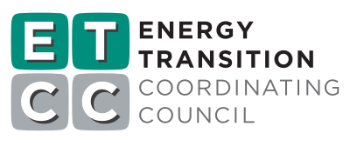Project Info
ACTIVE
Project Title
Multifamily Central Heat Pump Water Heater Field Study
Project Number ET24SWE0029 Organization SWE (Statewide Electric ETP) End-use Water Heating/DHW/HPWH Sector Commercial Project Year(s) 2024 - 2026Description
Water heating accounts for 40 percent of natural gas consumption in the residential sector, representing 7 percent of the state’s total GHG emissions (E3 2019). Water heating energy use in multifamily buildings with 5 or more units accounts for 32 percent of total energy use based on a 2015 Residential Energy Consumption Survey by U.S. EIA. HPWH systems use electricity to produce hot water by transferring heat energy from one source (typically air) to potable water. The 2022 Title 24 Statewide All-Electric CASE research suggested central domestic hot water (DHW)systems are common in most multifamily buildings, except for those with a small number of dwelling units. Central HPWH systems are an important technology to decarbonize multifamily buildings.
Central HPWH systems are a relatively new technology. While there are previous studies that focus on lab testing and field demonstration of specific products and highly engineered system designs, field evaluation of typical real-world installations of a wide range of systems and products will be of significant value in terms of improving industry’s knowledge of the technology, creating awareness and confidence among consumers, and consequently providing data to support or expand existing utility program design, and advancing market adoption. This study will leverage the opportunity primarily provided by the Energy Smart Home (ESH) program. This project team will work with the program participants to collect system installation data, install monitoring instruments to collect operational data for evaluation of the field performance of their systems. This performance evaluation of installed HPWH systems at five sites in combination with prior documented field studies will allow for preliminary identification of high, medium, and low performing hot water system designs. We will identify design, installation and operational features that are critical for a success application.
The research questions are:
What is the hot water delivery performance, and energy use of retrofitted HP system, and what is the difference in operating cost to the Energy Smart Home program customer after the water heating system switches from gas to electric? What are the recirculation losses, system COP, and HP COP? How does actual performance differ from rated performance by AWHI specifications?
Data collection on installed cost, and owner/contractor feedback on installation experience.
What are some real-world system designs that offer high-performance water heating and low installed costs that will help maximize the business case for replacement and uptake by building owners?
The project team envisions this effort as one of the three projects on CHPWH technology in multifamily buildings , which will lead to new measure development or updates (SWWH028 Large Heat Pump Water Heater, Commercial and Multifamily, Fuel Substitution). A market characterization study focusing on installed system for retrofit applications is also proposed concurrently with this study. A third planned study assesses the success and shortcomings of the existing measure package and include energy savings updates for the baseline and measure package.
